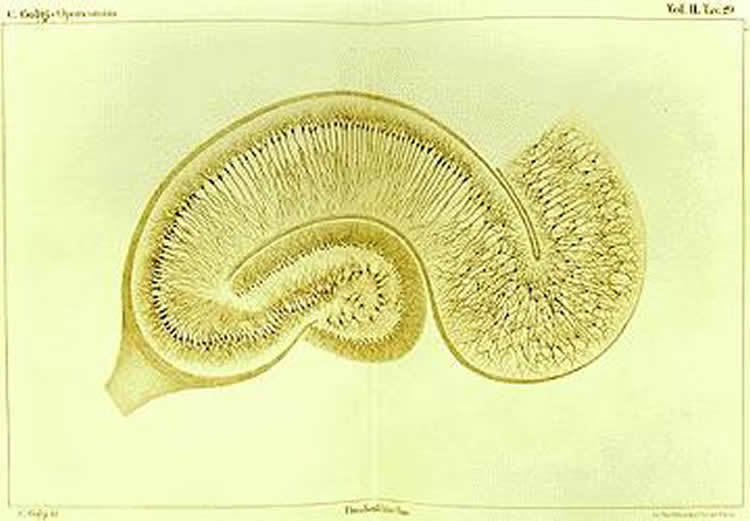Summary: Researchers report on the epigenetic effect of early life stress. In a new study, researchers reveal mice who experienced stress in the first few weeks of life showed deterioration in memory, learning and maternal behaviors. Behavioral changes were seen in their later offspring, regardless of sex.
Source: Akson Russian Science Communication Association.
Russian neuroscientists discovered that the stress experienced by mice during their first weeks of life, affects not only them but also their offspring. The obtained data will help to understand how negative experience in the early period of life affects the mammalian brain. The results are published in Genes, Brain and Behavior.
Separation from mother is a common early stress model for experimental animals. It is known that mice and rats separated from their mothers during the first weeks of life demonstrate more disturbing behavior and reduced learning abilities compared to their relatives. Although the behavioral consequences of such a negative experience are well studied, it is still not known what molecular and structural changes in the brain are associated with them.
Neurobiologists from Russia suggested that memory and learning deterioration due to early stress is associated with impaired development of the hippocampus. This part of the brain is involved in the memory formation and plays an important role in responding to stress and in regulating the level of anxiety. In one of the hippocampus structures, the dentate gyrus, the formation of new neurons continues even in adult animals. Therefore, hippocampus disorders may lead to many behavioral and cognitive pathologies.
To test their hypothesis, the scientists conducted several successive experiments on female mice. At the first stage, researchers raised three groups of mice. The mice from the first group in the first two weeks of life were daily separated from their mother for three hours, from the second group for fifteen minutes. The third group was the control animals not subjected to any stress. Then all three groups passed learning and memory tests. Several animals from each group were used to study brain tissue while others were used in the third experiment. Once each of them acquired offspring, the scientists checked their behavior.
Behavioral tests showed equal ability to learn in mice from experimental and control groups. Although spatial memory of animals from the first group, which in the first days of life were separated for a long time from their mother, was worse. In addition, these mice showed a less pronounced exploratory behavior when colliding with a new object and had 12% fewer neurons in the hippocampus. Moreover, the scientists have found a noticeable difference in the level of maternal care between different groups of animals which affected their offspring.

“The results of the study confirm that separation from mother during the first two weeks of life adversely affects the development of mice. They reveal a deterioration in memory and learning, maternal behavior is changing,” says Natalia Bondar, one of the authors of the work, a senior researcher at the laboratory of the regulation of gene expression at the Institute of Cytology and Genetics, SB RAS. “The most interesting result is the behavioral changes in the second generation of mice, related to their sex. It is unclear what mechanisms change mice offspring behavior. It is important to explore the changes associated with early stress at both the behavioral and molecular levels, as this will allow you to find ways to reduce its negative effect. ”
Funding: The work was supported by the Russian Science Foundation.
Source: Natalia Bondar – Akson Russian Science Communication Association
Publisher: Organized by NeuroscienceNews.com.
Image Source: NeuroscienceNews.com image is in the public domain.
Original Research: Abstract for “Stress early in life leads to cognitive impairments, reduced numbers of CA3 neurons and altered maternal behavior in adult female mice” by Vasiliy V. Reshetnikov Anna V. Kovner Arina A. Lepeshko Konstantin S. Pavlov Larisa N. Grinkevich Natalya P. Bondar in Genes, Brain and Behavior. Published November 28 2018.
doi:10.1111/gbb.12541
[cbtabs][cbtab title=”MLA”]Akson Russian Science Communication Association”How the Brain Decides Whether to Hold ’em or Fold ’em.” NeuroscienceNews. NeuroscienceNews, 7 January 2019.
<https://neurosciencenews.com/childhood-stress-epigenetics-10467/>.[/cbtab][cbtab title=”APA”]Akson Russian Science Communication Association(2019, January 7). How the Brain Decides Whether to Hold ’em or Fold ’em. NeuroscienceNews. Retrieved January 7, 2019 from https://neurosciencenews.com/childhood-stress-epigenetics-10467/[/cbtab][cbtab title=”Chicago”]Akson Russian Science Communication Association”How the Brain Decides Whether to Hold ’em or Fold ’em.” https://neurosciencenews.com/childhood-stress-epigenetics-10467/ (accessed January 7, 2019).[/cbtab][/cbtabs]
Abstract
Stress early in life leads to cognitive impairments, reduced numbers of CA3 neurons and altered maternal behavior in adult female mice
The hippocampus is a crucial part of the limbic system involved both in cognitive processing and in the regulation of responses to stress. Adverse experiences early in life can disrupt hippocampal development and lead to impairment of the hypothalamic‐pituitary‐adrenal axis response to subsequent stressors. In our study, two types of early‐life stress were used: prolonged separation of pups from their mothers (for 3 hours/day, maternal separation, MS) and brief separation (for 15 minutes/day, handling, HD). In the first part of our study, we found that adult female mice (F0) who had experienced MS showed reduced locomotor activity and impairment of long‐term spatial and recognition memory. Analysis of various hippocampal regions showed that MS reduced the number of mature neurons in CA3 of females, which is perhaps a crucial hippocampal region for learning and memory; however, neurogenesis remained unchanged. In the second part, we measured maternal care in female mice with a history of early‐life stress (F0) as well as the behavior of their adult offspring (F1). Our results indicated that MS reduced the level of maternal care in adult females (F0) toward their own progeny and caused sex‐specific changes in the social behavior of adult offspring (F1). In contrast to MS, HD had no influence on female behavior or hippocampal plasticity. Overall, our results suggest that prolonged MS early in life affects the adult behavior of F0 female mice and hippocampal neuronal plasticity, whereas the mothers’ previous experience has effects on the behavior of their F1 offspring through disturbances of mother‐infant interactions.






